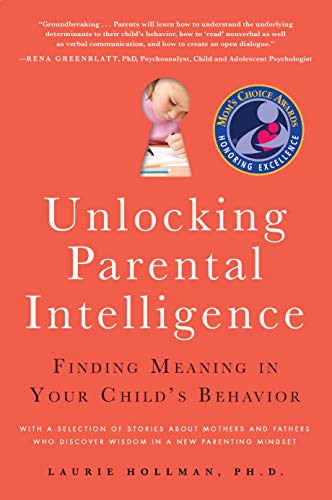Busy parents are the norm for today in the United States at all socio-economic levels.
While parents often have two and three children on average that they want to keep in mind every day focusing on their developmental needs and activities as well as their own adult work, this makes for an overrun schedule.
No one seems to feel attended to enough or to get sufficient down time for relaxation and play. How do parents and their kids cope and even get to know each other?
I’ve written and also discovered several books that range in subject matter from anxiety and anger to exhaustion and technology that strike a chord for busy parents.
Several of my books address the parenting style, The Parental Intelligence Way, that gives a structured “go to” remedy for a range of puzzling behaviors with which children are actually attempting to communicate.
Yes. Communicate.
Behavior is understood as a language when there just aren’t words that kids can easily use to say what’s on their upset minds. Instead of reacting quickly, parents learn they can discover how to understand what’s upsetting their kids so when they problem solve, they’re really addressing the most pressing issues the kids feel and face.
I discovered as a psychoanalyst what I was helping parents with when they felt at the end of their rope trying to cope with their kids’ unexpected and untoward behaviors I could also write down for the general public.
Once parents were able to stop blaming themselves and their kids for unwanted behaviors, but instead understand that behavior was a signal to a distressed (not bad or disobedient) child, parents and kids not only got along much better but empathized with each other and liked each other, too!
In addition to my own books, of course, on the way I read talented writers who were also fascinated by behavior. I have included them because they follow the same line of thinking that behaviors that are puzzling have reasons for them. You will see a book about the skills kids may be lacking which is why they behave as they do.
You may also discover that despite huge parental efforts by busy mothers and fathers in the United States to have the smartest kids in the world whose behaviors are consistent with mental health enabling them to compete when they grow up are not found in the United States.
In other countries, kids are more skilled in math, science, and reading. The parents in other countries can lend wonderful ideas that help us help our kids not only be better educated but behave more effectively and enjoyably without being rushed and overscheduled.
These varied books read easily and feel so personally to the point that even busy parents find the time to read them! Furthermore, each book lends itself to strengthening parent-child bonds of all ages even for the busiest of parents and the most active kids.
A parent’s day is full of tasks to be accomplished and chores to be done. Dealing with anger—from constant arguments to temper tantrums—just adds one more thing to that lengthy list of stresses.
At just over 100 pages, this book provides a quick read when you need remedies to angry reactions. And the best part? The principles teach parents how to respond to children and teens in a way that is easy to remember and implement every day.
Multiple situations of children and teens at various ages with various problems are illustrated in a story like the way that you will identify with.
You will find yourself rooting for the kids and parents to grasp each others’ points of view, solve problems that have led to anger sometimes in surprising ways, and want to make this approach part of your family’s life
Healthy anger is also discussed and ways to increase kids’ ways of expressing their feelings are addressed and illustrated.
Even young kids can learn a “feeling vocabulary” that will help them tell their parents what’s troubling them and stirring up anger that will help them from young days through teenage land and adulthood.
Busy parents yearn to relieve their kids of anxiety that takes a wide range of forms. Dealing with anxiety—from separation anxiety to full-blown panic attacks—just adds one more thing to kids and parents stressed lives.
At just over 100 pages this book provides a quick read when you need to understand and offer remedies for anxiety.
The range of anxiety symptoms is clarified with illustrative examples and parents learn how to respond to their loved children and teens in a way that they can learn, remember, and share with their kids daily.
You will see yourself and your kids in the varied examples and begin to really understand signposts of anxiety that you’ve seen but may have overlooked as insignificant.
Now you’ll finally know how to help your child not only cope but relieve these heartrending symptoms that unnerve and worry parents because they hurt when their kids hurt.
Related: How to Help Your Child With Anxiety – Using the Parental Intelligence Way
Do you wonder why your child or teen seems drained, over-tired, moody, anxious and depressed?
Exhaustion is a symptom of varied problems with a wide range of meanings.
In this quick read for busy parents, you meet many exhausted kids from a two-year-old taking excessive naps to avoid feelings of loss to a sixteen-year-old super athlete with ambitious career goals.
Psychoanalyst Laurie Hollman, Ph.D. provides insight and guidance to help your exhausted child after carefully explaining what exhaustion actually means. This mini-book includes:
- Recommendations for adequate sleep.
- An exploration of special problems, such as kids of parents with marital problems or dual working parents; an emphasis on being the smartest kids globally; burn out, depression, and anxiety; insufficient free playtime; and the effects of screen time.
- Research about the effects of exhaustion on memory, school performance, mood regulation, pain sensitivity, and the immune function and even more are covered succinctly for the busy parent.
Using the 5 steps of The Parental Intelligence Way, you can learn how to identify and alleviate the various reasons your kids are exhausted and what you can successfully do about it.
How do screens affect babies? How can I protect my children from cyberbullying? What are the positive effects of technology? How can we bridge the technology generation gap?
With multiple case illustrations and case studies and the latest research, psychoanalyst Laurie Hollman, Ph.D. cover these questions and many more in this up-to-date mini book for parents learning to manage technology with their children and teens.
Parents who follow the 5 steps of The Parental Intelligence Way become “meaning-makers” deeply interested in what goes on in their children’s minds and how their brains work as they use technology.
In this helpful guide, parents will come to understand new research findings that are exciting and intriguing to understand.
As these findings become ore complete in decades to come, utilizing Parental Intelligence will help parents continue to discover their children’s remarkable capabilities as they learn the meaning behind their kids’ technological behaviors and conflicts. A must-read for today’s world!
In this landmark book, David Elkind calls our attention to the dire effects of hurrying our children throughout their day to stir their knowledge and ambitions.
With a wise and reasoning approach, Elkind shows us how by expecting and even enforcing too much we push our kids to grow up too fast without regard to their own interests and developmental needs.
There is an up-to-date look at classroom culture, the internet, movies, and TV. Elkind explains how parents and teachers hurry kids through their days as if they need to imitate adult aspirations and why this is occurring.
I have found this book to offer not only keen insights but specific highlights of what parents need to be concerned with to meet their kids’ developmental needs including play.
Laura Stack addresses the common problem of exhaustion by offering her plan to remove this disabling element from daily life. She looks at diet, lifestyle, and relationships so you can start helping your family live in a way that heightens their natural energy.
She suggests ways to help you alleviate situations with negative people who tend to control your thoughts and actions. She also discusses how to include fitness even in the busiest days and clarify your goals and have more time to enjoy family life.
Renown psychologist Stuart Ablon asks, “What if problem behavior isn’t a matter of will, but skill?”
In this ingenious book he identifies kids with behavioral problems no one seems able to understand and remedy because they take the wrong approach, thinking kids are disobedient or lacking morality and intelligent coping methods.
He refines these problem behaviors into the very specific lack of skills these kids have that they can be taught and then willingly and even joyfully find they are coping with problems and conflicts in school and at home.
This book offers a truly remarkable new outlook on changing unwanted puzzling behavior that is even demonstrated by juvenile offenders, nevertheless, everyday kids with behavioral upsets.
Take up his challenge and study these skills which become so clear and obvious that you’ll wonder why you ever scolded your child who you love so dearly.
“Why do children do what they do?” “What’s on their minds?” “How can parents know their child’s inner world?”
Psychoanalyst Laurie Hollman, Ph.D. lifts the curtain on these questions by helping parents become “meaning-makers” who understand the significance behind their kid’s behaviors.
Five enlightening easy to learn steps help parents solve problems collaboratively with their kids by learning what their kids think, want, intend, and feel. This new empathic approach will uplift and reshape families’ lives and guide them through all stages of typical and atypical child development.
Multiple short stories about a wide range of families illustrate how varied parents understand their children’s problems ranging from infancy to adolescence.
You will find yourself in these stories and root for the parents and the kids as they get to know each other so well, get along beautifully in ways you always dreamed your kids would and feel loved and cared for as they grow.
How do the superpowers in the world create educational systems that busy parents can appreciate because they create the smartest kids? The U.S. is not number one. It’s time to find out why.
Ripley followed American kids in very different countries who studied in foreign schools. Groundbreaking approaches about how kids are taught in a range of cultures are astounding.
It is highly revealing how U.S. educators misread the best ways to help kids learn critical thinking skills necessary to survive well and happily in the current generations of new learners.
Written by this talented journalist, you will find answers to why American kids aren’t excelling in math and science and are rated only12th in reading in the world. The only thing U.S. schools are number one in is in the amount of money spent on each pupil.
Respect for teachers in the top countries is tantamount to respect for doctors in the U.S. Teachers are given the latitude to create the best lesson plans that suit their students even when their country’s economy is faltering. Teachers meet with kids not parents to help them understand their learning needs.
If you’re a busy parent, you’ll find this exciting research a whole new adventure in how to help our kids learn and excel.












